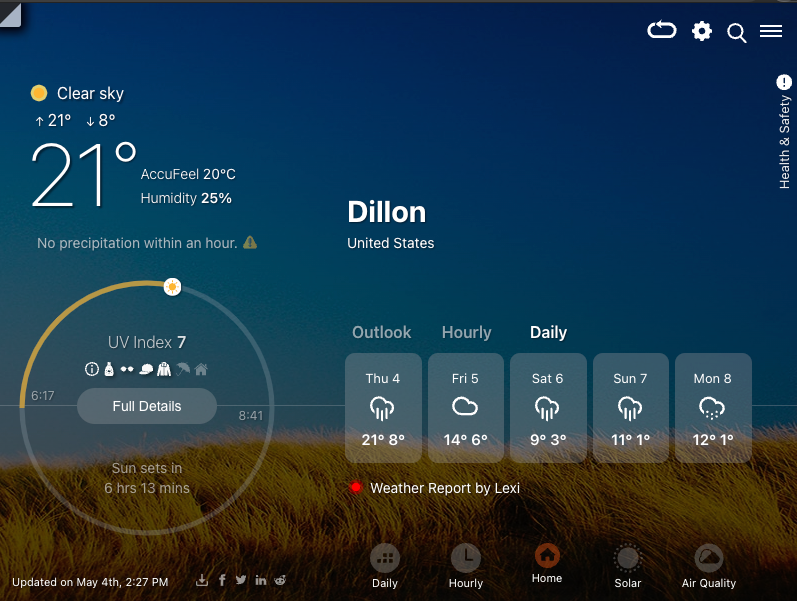3 min read . April 30, 2023
Weather predictions have come a long way since the days of looking at the sky and guessing what’s to come. With advancements in technology, meteorologists can now provide more accurate forecasts than ever before. But what if we could take it a step further? Enter Chat GPT, an artificial intelligence (AI) system that is revolutionizing the field of meteorology. We’ll explore how Chat GPT is transforming weather data gathering, preprocessing, and report generation, as well as discussing the future of meteorology with AI.
The world of meteorology has seen significant advancements over the years, but nothing quite like the introduction of AI systems like Chat GPT. This powerful tool uses natural language processing (NLP) to understand and generate human-like text based on input data. So how does this apply to meteorology? By utilizing vast amounts of weather data and applying advanced algorithms, Chat GPT can help meteorologists make more accurate predictions and improve communication about upcoming weather events.
Revolutionizing Weather Data Processing
Traditionally, various means such as satellites, radar systems, and ground-based sensors have been used to collect weather data. These methods’ effectiveness can be limited by factors such as location coverage and data quality. With Chat GPT’s ability to process large amounts of information quickly and accurately, it can gather data from multiple sources simultaneously. For example, social media platforms contain real-time updates from users experiencing weather events firsthand. By analyzing these posts using NLP techniques, Chat GPT can extract valuable information about current conditions that may not be available through traditional means. This additional layer of data helps meteorologists create more accurate forecasts by incorporating real-time observations from people on the ground.
Once you gather the data, you need to preprocess it before you can use it for predictions. This involves cleaning and organizing the data, as well as identifying patterns and trends. Traditionally, this has been a time-consuming process that requires significant human intervention.
However, Chat GPT’s advanced algorithms can automate much of this preprocessing work. By quickly identifying patterns in the data and filtering out irrelevant information, Chat GPT streamlines the preprocessing stage and allows meteorologists to focus on more important tasks. This not only saves time but also reduces the potential for human error in the forecasting process.
Transforming Weather Report with Chat GPT
One of the most critical aspects of meteorology is effectively communicating weather forecasts to the public. Traditional weather reports can sometimes be confusing or difficult to understand for non-experts. Chat GPT’s natural language generation capabilities enable it to generate weather reports in a more conversational and approachable manner. By analyzing historical weather data and current conditions, Chat GPT can create detailed yet easy-to-understand reports tailored to specific regions or even individual users. These personalized forecasts help people make informed decisions about their daily activities based on accurate and relevant information.
Furthermore, Chat GPT’s ability to generate text in multiple languages allows for better communication with diverse populations. This ensures that everyone has access to accurate weather information regardless of their linguistic background.

UV Weather powered by Chat GPT 4 | Lexi, Personal AI weather assistant
With the progression of AI technology such as Chat GPT, we can anticipate remarkable advancements in meteorology. An improvement such as personalized weather forecasting. If you’re interested in trying out the future of weather reporting with Chat GPT, you can download the UV Weather Chrome extension. UV Weather is an extension that offers real-time weather updates, personalized predictions, and engaging news-style reports, powered by Chat GPT. It provides improved planning and a thorough comprehension of the weather. Whether you need information about tomorrow’s weather or you need to plan for the future.

